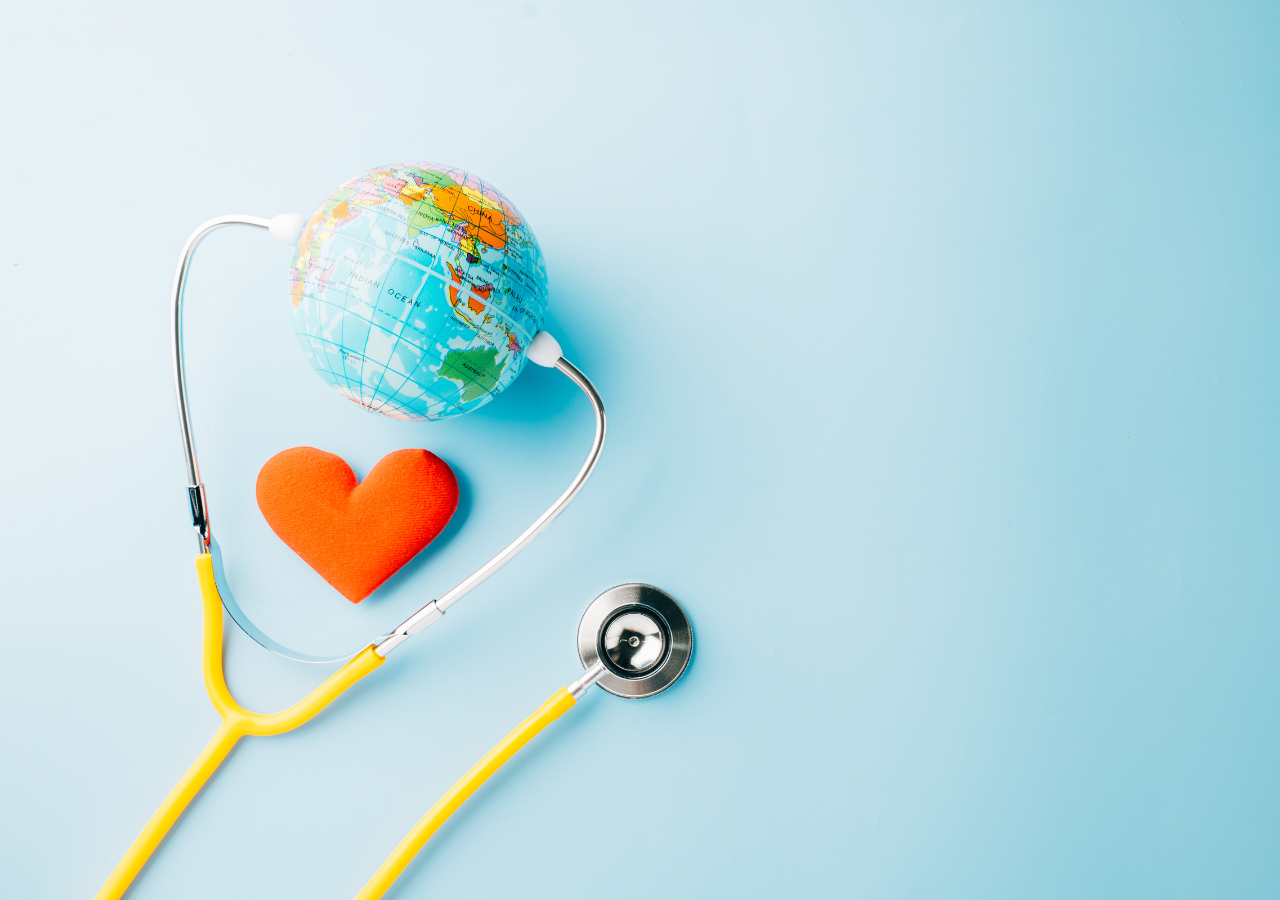Individuals with anxiety can experience a range of symptoms. Some may be an overwhelming fear, dread, and uneasiness impacting the ability to live your daily life. The mental distress individuals go through can lead to a variety of physical symptoms too, from high heart rate, high blood pressure, shallow breathing, dizziness, and even problems with digestion.
“How we think about ourselves, others, and the world around us while experiencing life challenges can significantly impact how we feel,” says Dr Azaad Kassam, a psychiatrist and assistant professor based in Ottawa, Canada.
“Pressure to perform - academically, athletically, artistically, interpersonally, socially, and in other roles,” as well as “global influences like social media, isolation, climate anxiety, migration, and political instability can create an aura of uncertainty that lead to anxiety.”
Some individuals may be more predisposed to anxiety, and might avoid certain activities in fear of an anxiety attack, and that’s how the disorder can begin to control various aspects of one’s life.
Regardless of the cause, it’s important to recognise you’re not alone. Anxiety impacts millions across the world in different ways and no matter how you may be affected, there are tools and techniques to help you cope. All they require is kindness and patience with yourself and some persistence to start seeing positive effects.
Mindfulness meditation:
Practising mindfulness meditation can help calm the mind and ease tension caused by anxious thoughts. It can help rewire how you respond to stress by lowering the reactional and fearful response towards anxiety-inducing factors.
Since it promotes a sense of relaxation, meditation can also help lower blood pressure and aid with better sleep, thus improving your overall mental and physical wellbeing. It's also worth noting that our faith has encouraged meditative remembrance practices (Dhikr) for centuries.
“Mindfulness and meditation helps ground you in the present moment, reducing overwhelming thoughts,” explains Dr Yamen Mustafa, a psychologist from Syria.
The practice promotes the Relaxation Response. Dr Mashal Babar Motani of the Aga Khan Health Board in the UAE provided a study defining the response as “your personal ability to encourage your body to release chemicals and brain signals that make your muscles and organs slow down and increase blood flow to the brain.”
Meditation also helps with Mindfulness-Based Stress Reduction, which helps individuals respond to stress by increasing their “mind and body awareness”. Both practices help reduce anxiety by impacting various areas of our brain. The “Relaxation Response” impacted areas responsible for deliberate control whereas “mindfulness-based stress reduction” affected the area for sensory awareness and perception.
Smartphone apps can help get you started with mindfulness. They are perfect for beginners, or even seasoned experts looking for longer guided meditations. Walks out in nature are great too, whatever the weather.
Yoga and breathwork:
Underrated, and overlooked, is the practice of breathwork. The onset of panic attacks can increase breathing and heart rates drastically. Research shows that diaphragmatic breathing can help with decreasing anxiety levels, and potentially helping those with high blood pressure and migraine attacks too.
A popular and effective breathwork technique is the 4-7-8 method, which involves inhaling for four seconds, holding your breath for seven, and then exhaling for eight. Repeat a few times when feeling anxious, and you might find it very effective in helping to regulate your system and reduce the panic rising.
Practising yoga also has great positive effects on one’s mental health. It helps you become more in tune with your body by practising breathwork in combination with specific movements. The results of a study on the impacts of Hatha Yoga concluded that this specific type of yoga helped reduce anxiety levels even for those who experienced high levels of it.
Dr Mashal points to research conducted in the US which found that students who practised yoga reported a reduction in anxiety and depression symptoms. An alternate study discusses the possibility of yoga therapy becoming an intervention for treating certain mental health disorders.
Patience and kindness:
Remembering your faith is also incredibly useful as it can be done discreetly no matter where you are. Whether you’re sat at your desk in the office, on the train home from university, or even waiting in line for a morning coffee, if those anxious feelings begin to creep up, you can get in control of your mind. A quick guided meditation through your headphones, or a couple of minutes following the 4-7-8 technique, or calling on your tasbih can help ease the symptoms and continue with your day.
For anyone who struggles with anxiety, especially students and young people, a key idea to remember is to be kind and patient with yourself.
“Recognise that some level of anxiety in a particular situation can be a normal reaction,” says Meera Ebrahim, a counsellor and Chair of AKHB in the UK, “however anxiety disorders involving excessive and persistent worry can impact daily functioning and cause distress.”
“Encouraging positive lifestyle factors including sleep, healthy eating and exercise, as well as seeking healthy connections and encouraging balance can be important. Steps to obtain support can include reaching out to a family doctor, and often students on campus can seek confidential support through counselling services.”
To reiterate, remember to be patient and consistent with yourself. One quick guided meditation or one yoga class is not going to magically transform the way your brain operates. However, over time the benefits will become evident as you find anxiety loosens its grips on your life. Just like with exercise, the more you work on a specific part the stronger it becomes – the same applies with your mind.








